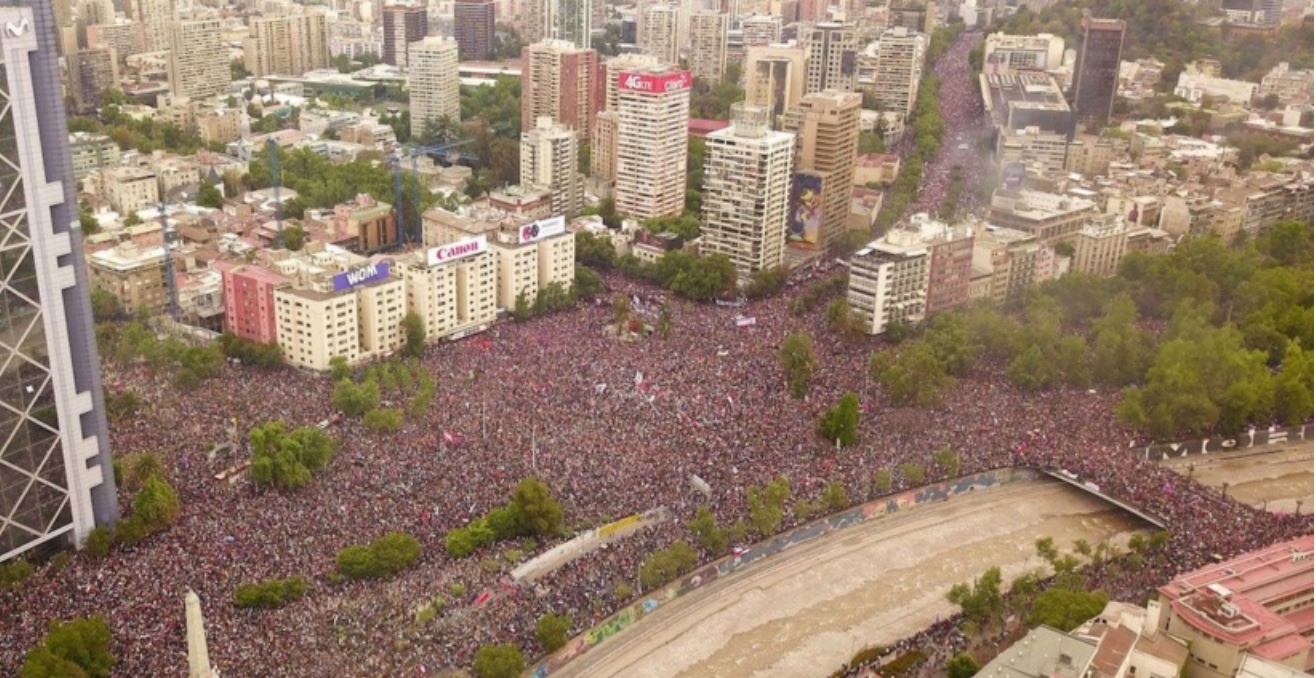An opinion editorial by Alejandro Salinas Rivera, ICJ Commissioner (Chile)
Almost one month after the social protests began in Chile, the democratic political forces have reached an agreement that might enable the country to address the social crisis the protests evidenced.
During the past month, millions of people took to the streets throughout the country calling for deep reforms to guarantee economic, social and cultural rights. Most of the protests were pacific; however, some serious acts of violence were committed.
Initially, governmental authorities and other political leaders’ reactions failed to meaningfully address the concerns and demands of protestors and many in the general public. In addition, there were credible allegations of serious human rights violations committed by personnel of the security forces. For instance, the National Institute of Human Rights (NHRI) indicated it is representing 489 persons that suffered from criminal acts that may constitute violations to human rights, and there are more than 200 people injured in the eyes by the effect of rubber pellets.
Recent political agreement
On 15 November, political parties with parliamentary representation, except the Communist Party and small leftist parties, signed an agreement that establishes the beginning of a path to address the crisis: a procedure to adopt a new Constitution.
But why is this so important in Chile? Because the current Constitution was drafted and adopted in 1980 during the dictatorship. Despite the changes introduced since democracy after 1990, the fact is it still reflects the political and social model that governs the country. The Constitution has always been considered as a straitjacket to introducing social changes that Chile needs to effectively improve the quality of life of its inhabitants, as it does not give a prominent role to the State to guarantee economic and social rights.
The agreement established an itinerary for this constitutional change. First, there will be a popular referendum to be held in April 2020, to ask the people: a) Do you want a new Constitution? (Approve/Disapproved); and b) What kind of body should write the new Constitution? (Mixed Constitutional Convention or Constitutional Convention).
Second, after the results of the referendum, there will be an election to integrate the body that will draft the new Constitution in October of 2020, and after drafting the new Constitution there will be a popular referendum to ratify the draft.
This agreement raises hope for a profound change to address the social demands in Chile and to improve the institutional design for guaranteeing economic, social and cultural rights. However, it alone will not be enough to solve the demands expressed in the protests. There is a need to take immediate actions to achieve substantial agreements for the effective realization of economic, social and cultural rights, and to strengthen the State’s capacity to respond to social demands and to close the inequality gap.
Further steps that need to be taken
Additional tasks remain pending after the signing of this historic agreement. Some of them are,
- Adoption of specific political agreements that makes the constitutional process viable, and that guarantee that it answers to the current social demands. The first major agreement is to establish the terms of the referendum that will call the people to decide on the adoption of new Constitution and to call to the popular vote in April.
- Adoption of specific public policies to materialize economic and social rights that do not require constitutional changes, just strong political will. These would include, for example, real improvements of the pension, health and education system.
- Prompt and effective investigation into the actions of the police and security forces during the protests. This requires a complete review of the action protocols, and possibly, the adoption of changes within the institution.
- Prompt and effective investigation of the complaints against the police and the security forces for serious human rights violations and, where the evidence warrants, prosecute and sanction those responsible. Independent judges and the prosecutors are key to fulfilling this obligation.
- Prompt and effective investigations of the acts of violence committed during the protests that affected and damaged the country and bring those responsible to justice.
- Strengthening public institutions, such as the police forces (Carabineros), the National Institute of Human Rights, Government’ offices in charge of social public policies, among others.
The road that lies ahead is not easy and it is full of obstacles, but it opens a path of hope. For instance, changing the Constitution was a pending task of Chilean democracy, and now it seems possible. The next steps are to design a political and social model that guarantees equity, allows solidarity and fully respects human rights.

